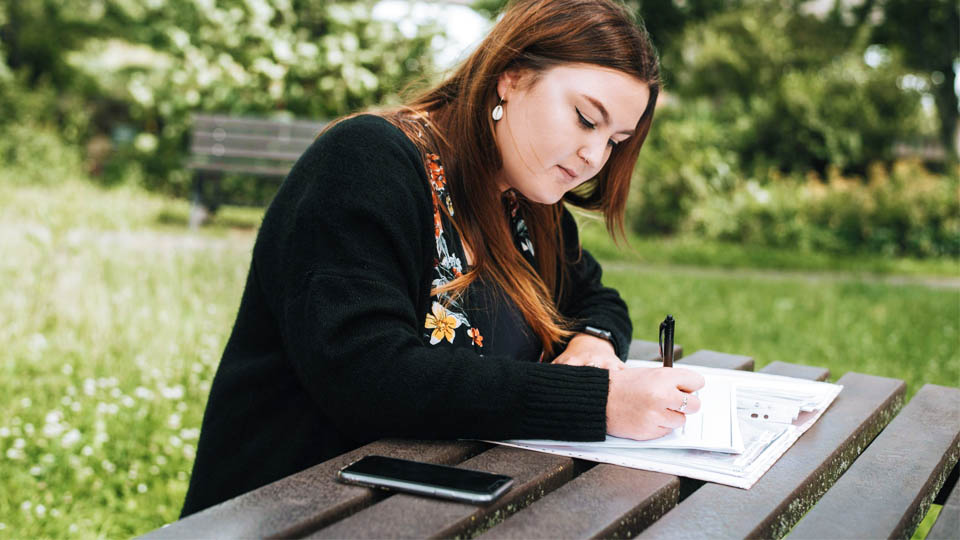People often have drastic opinions on smartphones as a part of the studying process. Their unlimited Internet connectivity gives access to both the good and the bad. Many believe that students tend to use them irrationally. College students around the world procrastinate and can't concentrate because of smartphones.
There’s no denying the dangers of such devices. But, with a proper attitude, they can become irreplaceable study aids. Most helpful features are pre-built or can be accessed free of charge. Of course, they don’t automatically teach self-control and impulsivity – but, there are several things smartphones can do.

Pros
Keeping Track Of Deadlines
Being a college student means keeping up with hundreds of assignments. They might not have time to finish tasks and resort to online help. It's not uncommon for students to look for things like "write my paper" before the due date. Thankfully, a smartphone makes tracking assignments easier than ever.
There are several planners and homework apps available on Android and iOS. Students have to provide information for apps to work properly. With their help students can:
- Set assignment deadlines
- Check on their progress
- Create daily schedules
- Set exam dates
Such apps make sure that students stay on track by reminding them of their goals. Punctual college attendants have the option of the simpler Google Calendar. Any deadline app is better than relying on post-it notes – this approach saves time that can be spent on achieving academic goals.
Finding Educational Materials
Smartphones may be a great source of distraction. But, they’re also great for doing research. There’s no end to the number of articles, audio files, videos, and books students can find on any given subject. This makes homework a lot easier – you can also look up unfamiliar facts when listening to lectures.
Of course, there’s the question of being too reliant on technology. Owning a smartphone doesn’t mean that students don’t have to memorize anything anymore. They have to understand that the device is only a means of gaining information.
Taking Notes
The days of students taking handwritten notes may soon come to an end. Writing non-stop during a lecture that’s over an hour long can become tiresome. If a student misses some part of the information, he or she will have to ask for it afterward. Using a smartphone ensures that nothing gets past them.
If teachers allow it, students can photograph the board or record the lectures. It will come in handy, especially when working on Chemistry and Physics experiments. You’ll be able to play audio or video recordings as many times as necessary. This way students are more likely to understand the subject and ace an upcoming test.
There are many smartphone apps that help students take notes. For example, Evernote allows recording ideas in the form of photos, weblinks, and videos. This helps students organize their notes in the best way possible.
Online Learning
Education doesn’t stop in the classroom. Students are free to choose from various smartphone apps. For example, they can learn new languages with Duolingo. It’s also possible to improve their understanding of subjects from free courses by Coursera, Udemy, and edX. All have great educational content.
The best part is that these platforms aren’t tied to a location. The same can be said about attending classes. Even if you can’t make it to the lecture, there’s the option of participating virtually. Students also turn in most assignments online and have access to study resources. This way they can learn at their own pace whenever they can.
Staying Organized
Being a student isn’t all about hitting the books. Everybody has daily activities outside their academic life. Smartphones are a great way of keeping up with them. For example, they can set reminders about important social events or trips. There are many free apps that will make their lives easier. But, not everything is so bright.
Cons
A World Of Procrastination
While smartphones are a great study tool, they are a source of endless distraction. This is true during online and regular lectures. The temptation to spend hours on Facebook and TikTok is even harder when they sit alone in a dorm room. As a result, students can’t concentrate on the work at hand or pay attention to what professors say.
The apps are designed to give users a short dopamine rush. Many find it more interesting and exciting than spending time on boring assignments. Although this is a problem, it has a solution. There’s a lot of good app-blocking software. It restricts access to anything non-study-related until users are done working. For example, these can be blocked from 8 AM to 18 PM.

Distracting Others
While some colleges switched to online classes, there are many providing regular lectures. Smartphones can disturb students with ringing and notification dings. These can distract others from lectures or put them on pause. That’s why professors need a strict silent mode rule when students enter the lecture halls.
The problem doesn’t stop there. Even if the phones are silent, students can use them to chat and share social media posts. This can create conflicts, disturbances, or other problems in the classroom.
Poor Sleeping Habits
Many students develop poor habits as a result of smartphone abuse. They binge games like Candy Crush till 1 or 2 in the morning. This happens because they are completely absorbed by the screen and can’t feel the time passing. Others spend half of the night chatting with friends. Such students have only a couple of hours to get some rest.
As a result, they feel exhausted the next morning. It will reflect on their academic performance and ability to focus on lectures. Students have to make sure that they turn off devices at least an hour before going to bed. This way they’ll feel more rested and sure of themselves.
Conclusion
As with any piece of technology, students have to cultivate a habit of using it moderately. It's important to set boundaries on daily smartphone use. Otherwise, the cons of using these devices will greatly outweigh the pros.
 Samsung Galaxy J7 Refine
Samsung Galaxy J7 Refine  Google Pixel 8 Pro
Google Pixel 8 Pro  Xiaomi Mi 5
Xiaomi Mi 5  Samsung Galaxy A24
Samsung Galaxy A24  Realme 6 Pro
Realme 6 Pro  Sony Xperia M5
Sony Xperia M5 

